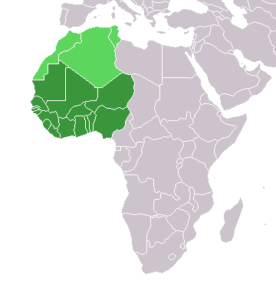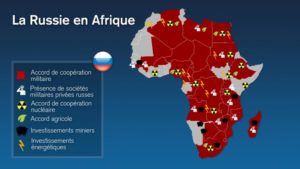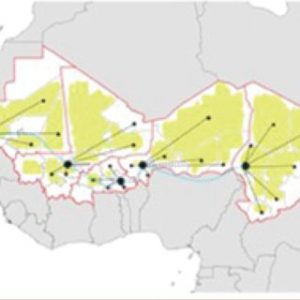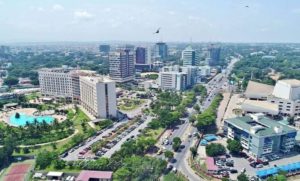Sahel: gold mining and terrorism
 For a decade, gold exploitation, legal or illegal and official or informal, has known a speedy expansion throughout the Sahel. Its actors are numerous and range from Canadian and Russian multinationals to small informal local operators. Financial incomes and especially jobs creations, even dangerous ones, are considerable for all: private companies, governments and small operators as well as their equipment suppliers often from Middle East.
For a decade, gold exploitation, legal or illegal and official or informal, has known a speedy expansion throughout the Sahel. Its actors are numerous and range from Canadian and Russian multinationals to small informal local operators. Financial incomes and especially jobs creations, even dangerous ones, are considerable for all: private companies, governments and small operators as well as their equipment suppliers often from Middle East.


 Terrorist attacks against Burkina Faso, Mali and Niger continue unabated. Over the last year, violence in the three countries has increased by 36% with 2 737 serious incidents. The first two countries now trust their cooperation with the Russian Federation to overcome the scourge. They granted mining concessions to Moscow as a part of payment for its military assistance. The rapprochement between Ouagadougou and Bamako suits the two juntas, but complicates the fight against terrorism in the sub-region, already undermined following the departure of Mali from the G5 Sahel. However, Niger continues its cooperation with France, in this difficult fight. The organization scheduled next week summit in Ndjamena, indeed for time being without Mali, should indeed be a good indicator of that organization future and its large possibilities.
Terrorist attacks against Burkina Faso, Mali and Niger continue unabated. Over the last year, violence in the three countries has increased by 36% with 2 737 serious incidents. The first two countries now trust their cooperation with the Russian Federation to overcome the scourge. They granted mining concessions to Moscow as a part of payment for its military assistance. The rapprochement between Ouagadougou and Bamako suits the two juntas, but complicates the fight against terrorism in the sub-region, already undermined following the departure of Mali from the G5 Sahel. However, Niger continues its cooperation with France, in this difficult fight. The organization scheduled next week summit in Ndjamena, indeed for time being without Mali, should indeed be a good indicator of that organization future and its large possibilities. Just ten years after the rescue of Mali official government by the French military operation Serval, which became Barkhane a few months later, the security situation in that country remains structurally more fragile than in 2013. Beyond Mali, it is most seriously threatened throughout the Sahel to the edges of Lake Chad and the gulfs of Benin and Guinea. Why, despite the massive, both international and internal, human and material resources injected, does such security deterioration continue?
Just ten years after the rescue of Mali official government by the French military operation Serval, which became Barkhane a few months later, the security situation in that country remains structurally more fragile than in 2013. Beyond Mali, it is most seriously threatened throughout the Sahel to the edges of Lake Chad and the gulfs of Benin and Guinea. Why, despite the massive, both international and internal, human and material resources injected, does such security deterioration continue? The Accra initiative was born out of seven West African countries desire to pool together their resources to deal with emerging threats: Benin, Burkina Faso, Ivory Coast, Ghana, Mali, Niger and Togo. Nigeria associated itself with it at the concerned Heads of State and Governments summit held in the Ghanaian capital on 22 November 2022. Member countries wanted to move quickly into action. To be effective, they need to fulfill a number of conditions: forging a common strategic vision; mobilizing, as soon as possible, the means of their ambitions; opening up to other countries in the sub-region; and establishing partnerships all over.
The Accra initiative was born out of seven West African countries desire to pool together their resources to deal with emerging threats: Benin, Burkina Faso, Ivory Coast, Ghana, Mali, Niger and Togo. Nigeria associated itself with it at the concerned Heads of State and Governments summit held in the Ghanaian capital on 22 November 2022. Member countries wanted to move quickly into action. To be effective, they need to fulfill a number of conditions: forging a common strategic vision; mobilizing, as soon as possible, the means of their ambitions; opening up to other countries in the sub-region; and establishing partnerships all over.